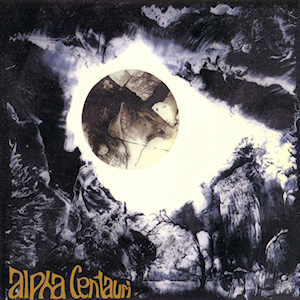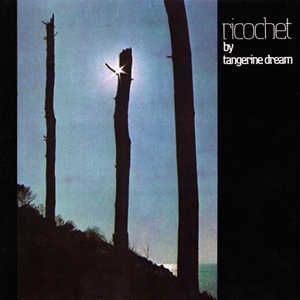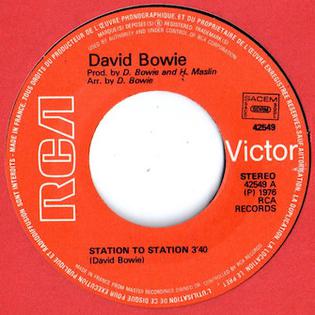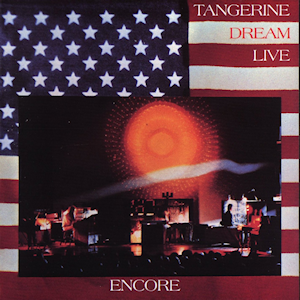
Tangerine Dream is a German electronic music band founded in 1967 by Edgar Froese. The group has seen many personnel changes over the years, with Froese the only constant member until his death in January 2015. The best-known lineup of the group was its mid-1970s trio of Froese, Christopher Franke, and Peter Baumann. In 1979, Johannes Schmoelling replaced Baumann. Since Froese's death in 2015, the group has been under the leadership of Thorsten Quaeschning. He was joined by violinist Hoshiko Yamane in 2011, Ulrich Schnauss in 2014 and Paul Frick in 2020.
Ambient music is a genre of music that emphasizes tone and atmosphere over traditional musical structure or rhythm. It may lack net composition, beat, or structured melody. It uses textural layers of sound that can reward both passive and active listening and encourage a sense of calm or contemplation. The genre is said to evoke an "atmospheric", "visual", or "unobtrusive" quality. Nature soundscapes may be included, and the sounds of acoustic instruments such as the piano, strings and flute may be emulated through a synthesizer.

Klaus Schulze was a German electronic music pioneer, composer and musician. He also used the alias Richard Wahnfried and was a member of the Krautrock bands Tangerine Dream, Ash Ra Tempel, and The Cosmic Jokers before launching a solo career consisting of more than 60 albums released across six decades.
Krautrock is a broad genre of experimental rock that developed in West Germany in the late 1960s and early 1970s. It originated among artists who blended elements of psychedelic rock, avant-garde composition, and electronic music, among other eclectic sources. Common elements included hypnotic rhythms, extended improvisation, musique concrète techniques, and early synthesizers, while the music generally moved away from the rhythm & blues roots and song structure found in traditional Anglo-American rock music. Prominent groups associated with the krautrock label included Neu!, Can, Faust, Tangerine Dream, Kraftwerk, Cluster, Ash Ra Tempel, Popol Vuh, Amon Düül II and Harmonia.

Edgar Willmar Froese was a German musical artist and electronic music pioneer, best known for founding the electronic music group Tangerine Dream in 1967. Froese was the only continuous member of the group until his death. Although his solo and group recordings prior to 2003 name him as "Edgar Froese", his later solo albums bear the name "Edgar W. Froese".

Peter Baumann is a German musician. He formed the core line-up of the pioneering German electronic group Tangerine Dream with Edgar Froese and Christopher Franke in 1971. Baumann composed his first solo album in 1976, while still touring with the band, and embarked on a solo career in 1977. He founded the record label Private Music. Since the early 2000s, Baumann has devoted his time to studying and promoting initiatives in science and philosophy that shed light on the human condition.

Harmonia was a West German musical "supergroup" formed in 1973 as a collaboration between members of two prominent krautrock bands: Cluster's Hans-Joachim Roedelius and Dieter Moebius joined by Neu! guitarist Michael Rother. Living and recording in the rural village of Forst, the trio released two albums—Musik von Harmonia (1974) and Deluxe (1975)—to limited sales before dissolving in 1976.

Electronic Meditation is the debut album by German electronic music group Tangerine Dream. It was released in June 1970 by record label Ohr.

Alpha Centauri is the second studio album by German electronic music group Tangerine Dream. It was released in March 1971 by record label Ohr.

Zeit is the third studio album by German electronic music group Tangerine Dream. A double LP, it was released in August 1972, being the first release featuring Peter Baumann, who joined then-current members Christopher Franke and Edgar Froese. Zeit is subtitled Largo in Four Movements.

Phaedra is the fifth studio album by German electronic music group Tangerine Dream. It was recorded during November 1973 at The Manor in Shipton-on-Cherwell, England and released on 20 February 1974 through Virgin Records. This is the first Tangerine Dream album to feature their now classic sequencer-driven sound, which is considered to have greatly influenced the Berlin School genre.

Ricochet is the seventh major release and first live album by German electronic music group Tangerine Dream. It was released, on the Virgin label, in 1975. It consists of two side-long compositions mixed from studio recordings and the UK portion of their August–October 1975 European Tour. The sound of the album is similar to that of the group's other "Virgin Years" releases, relying heavily on synthesizers and sequencers to produce a dense, ambient soundscape, but is much more energetic than their previous works. Ricochet uses more percussion and electric guitar than its predecessors Phaedra and Rubycon, and borders on electronic rock. The main innovation on the album is the use of complex, multi-layered rhythms, foreshadowing the band's own direction in the 1980s and trance music and similar genres of electronic dance music.

Exit is the sixteenth major release and eleventh studio album by the German group Tangerine Dream. The first track features an uncredited Berlin actress chanting, in Russian, the names of the continents of the world and pleading to end the threat of "limited" nuclear war, which was a potential danger facing the world during the late Cold War era in which the album was released. Exit reached № 43 in the UK, spending five weeks on the chart.

"Station to Station" is a song by English musician David Bowie. It was released in January 1976 as the title track and opener of his tenth studio album Station to Station, as well as on a promotional 7-inch single in France the same month. Co-produced by Bowie and Harry Maslin, it was written and recorded at Cherokee Studios in Los Angeles between September and November 1975. At over 10 minutes in length, it is Bowie's longest studio recording. Opening with a train-like noise, the song's first half is a slow march, built around an atonal guitar riff, while the second half takes the form of a prog-disco suite in a different key and tempo than the first. It has been characterised as art rock and is influenced by the German electronic bands Kraftwerk and Tangerine Dream.
"Neuköln" is an instrumental piece written by David Bowie and Brian Eno in 1977 for the album "Heroes". It was the last of three consecutive instrumentals on side two of the original vinyl album, following "Sense of Doubt" and "Moss Garden."
Jerome Froese is a German musician who, in 1990, officially joined his father Edgar Froese in the band Tangerine Dream. He remained a member until 2006. Prior to his direct involvement in Tangerine Dream, Froese often appeared on the covers of the band's albums as a child, beginning with the 1973 release of Atem, when he was two years four months old at the time the album was released.

Encore: Tangerine Dream Live is the tenth major release and second live album by the German group Tangerine Dream. It is mostly assembled from various recordings from the band's very successful 1977 U.S. tour.

Canyon Dreams is the fortieth major release and it was released as the fourteenth soundtrack album by German band Tangerine Dream. It was recorded in 1986 and released in 1991 on compact disc and compact cassette formats. The music was written as a sound accompaniment for an eponymous scenic video film about the Grand Canyon by Jan Nickman, released by the record label Miramar in 1987 on VHS, Betamax and LaserDisc. The album's tracks are divided into various episodes and related to the titles of the cuts.

Stuntman is the fifth solo album released by Tangerine Dream leader Edgar Froese, in 1979.

Ambient Monkeys subtitled is the fifty-ninth release by Tangerine Dream.
















